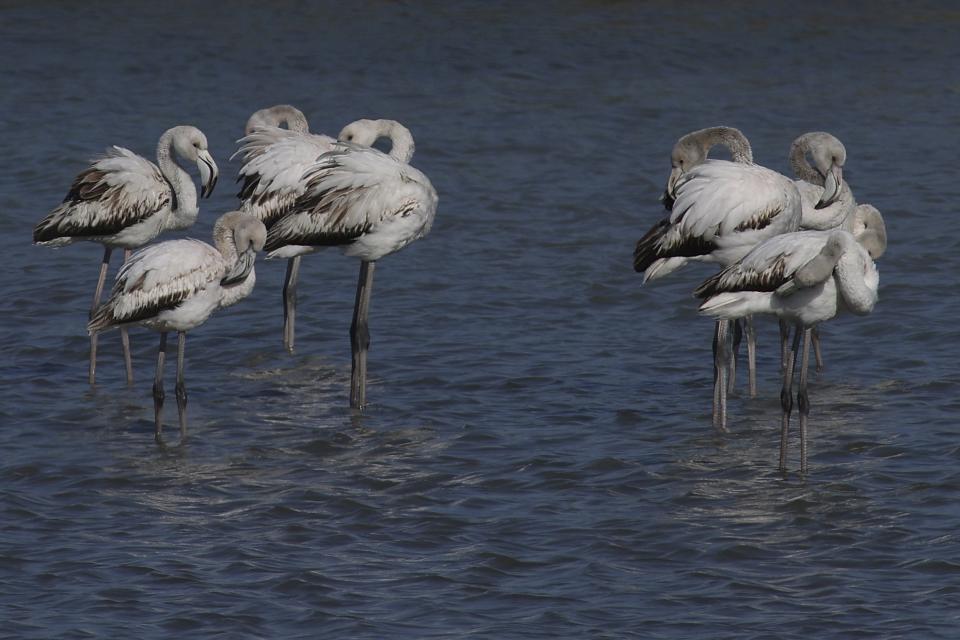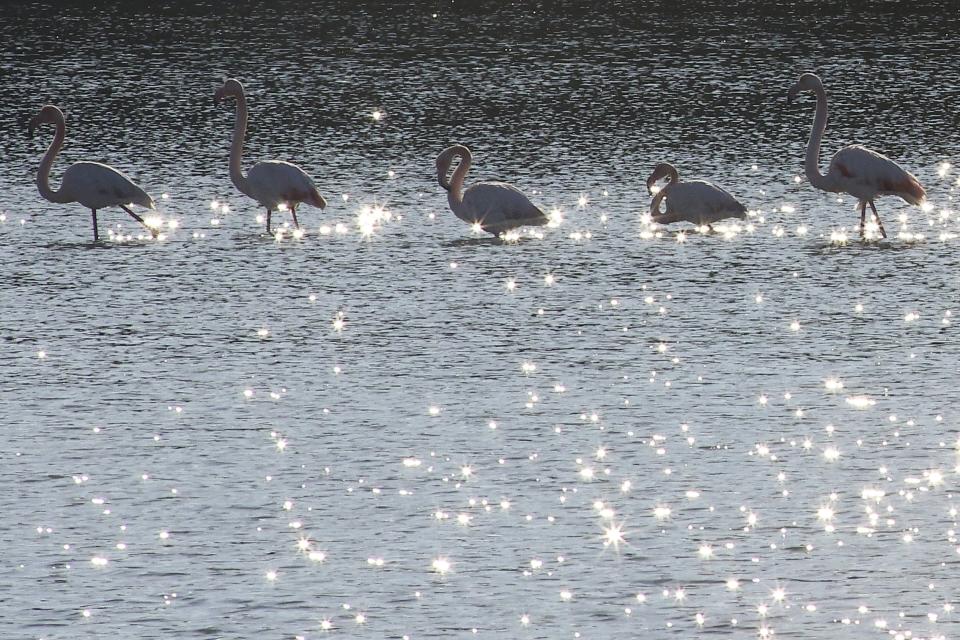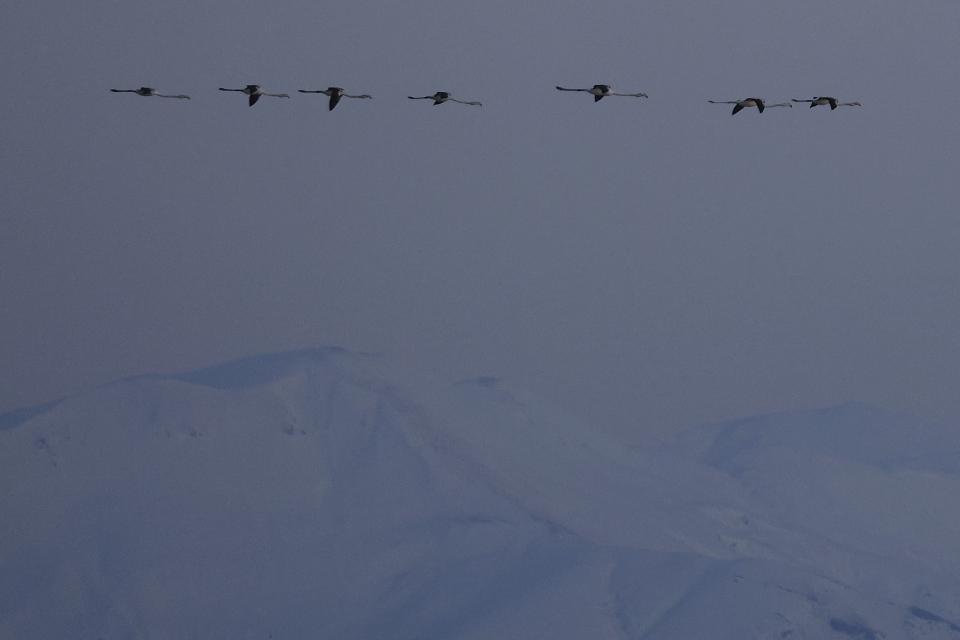AKERNI, Albania (AP) — A new, multimillion-euro international airport near Albania's coastal city of Vlora will mean hundreds of jobs for area residents. But environmentalists warn it could cause irreparable damage to the fragile ecosystems of protected lagoons that host flamingos, pelicans and millions of other migratory birds.
Albania's new, 104 million-euro ($125 million) international airport — the country's third — is currently being constructed at the Narta lagoon some 10 kilometers (6 miles) north of the city of Vlora. Set to start operations in 2025, the airport will boast a 3.2-kilometer (2-mile) runway and is expected to handle up to 2 million passengers a year.
That's good news for Adriatik Sela, a resident of Akerni village. The unemployed man hopes that “if there is business here, I could sell a cigarette package, or a coffee, or work as a guard.” He and others among the village's 1,000-strong population see the airport as an opportunity for a better life.
Heavy earth-moving vehicles and workers from Swiss company Mabco Constructions are currently busy building the runway as well as a road linking the airport to a nearby highway.
But Aleksander Trajce from the Protection and Preservation of Natural Environment in Albania, (PPNEA) says the airport poses a grave threat to the Narta lagoon and the Karavasta lagoon farther north and environmentalists have launched a court battle to stop its construction.
Millions of migratory birds use the lagoons as a rest stop as part of the Adriatic flyway, a route the birds use to travel from central and northern Europe to Africa. Up to 3,000 flamingos and pelicans visit the lagoons each year.
“Building such infrastructure right in the middle of this route would mean incredible damage to the bird populations for which this region is famous and on which it flourishes,” Trajce said.
Niko Dumani, from the non-governmental group Natural Environment Preservation and Protection Vlora, accuses the government of changing a pre-approved plan delineating a protected zone to incorporate a part of the lagoon into the airport's construction plans.
“It is strange how development policies change from promoting tourism to promoting other industries, like air transport, exploiting a habitat which is so important for tourism, like the lagoon,” he said.
Annette Spangenberg, from the German-based conservation group EuroNatur, said the Narta lagoon is part of an ecological network of conservation areas aiming at the long-term survival of bird species and their habitats.








